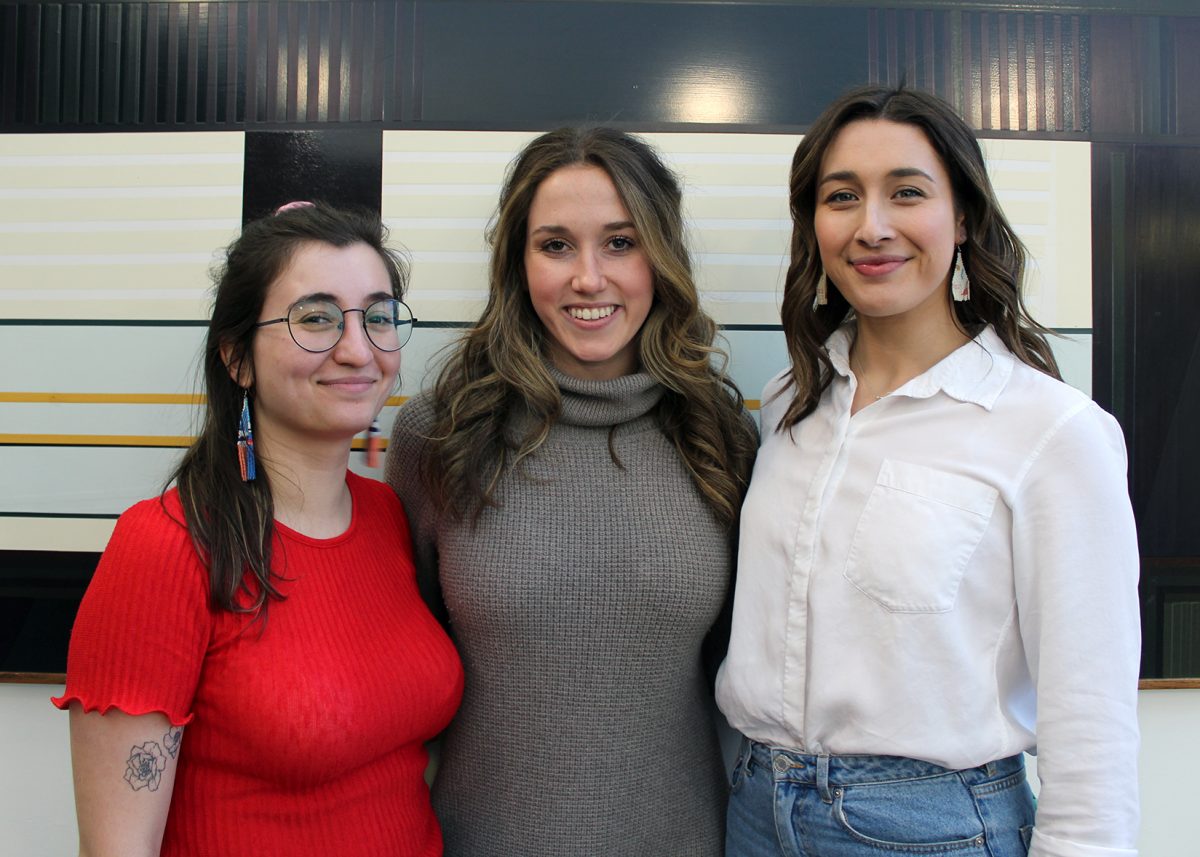
Paulina Nedjadrasul, Tori McConnell and Jacqueline Donner are local officers of reproductive and sexual health for the Max Rady College of Medicine's Global Health Portfolio and organizers of a new training initiative.
Med students aim to fill in sexual education gaps in high schools with new initiative
Today is the Canadian Federation of Medical Student’s National Day of Education and the Max Rady College of Medicine’s Global Health Portfolio is highlighting an initiative by students involved with the reproductive and sexual health component of their portfolio. The group is hoping to fill in the gaps in Manitoba’s current sexual education curriculum by training medical students to deliver workshops to high school students.
After the group’s successful campaign last year for universal coverage of the abortion pill Mifegymiso in Manitoba, this year its focus is on preventative medicine, including the prevention of unplanned pregnancy and sexually transmitted infections (STIs) and an overall emphasis on sexual health and well-being.
They have planned training sessions for interested medical students to gain the skills they need to effectively lead formal and engaging sexual health education workshops in the community. The group is working with the Women’s Health Clinic and is receiving guidance from the Clinic in designing the program. They hope to collaborate with local high schools and begin delivering the workshops in the spring or fall of this year.
We caught up with Jacqueline Donner, a second-year medical student and a local officer of reproductive and sexual health with the Global Health portfolio to talk about this project.
How did this initiative come about?
I think many Manitobans feel there’s a big gap in the sexual health component of our school system. A lot of our peers feel that they didn’t really get a comprehensive education, and certainly not a sex positive one. We realized as future physicians, we will have the privilege and responsibility at times of playing the role of sexual health educator for people, so we wanted to be as well-equipped as possible.
Why do you think sexual education is important?
Sexual health is all-encompassing. It plays into many aspects of our life. Many people in our community feel excluded by the way sexual health is currently taught. Sexual health is not just for people who are cis and straight. We’re being very careful about our terminology so everybody feels included. When you have a good knowledge of sexual health and are able to take some ownership of your own sexual health, it’s very liberating, and allows you to enter other parts of your life feeling autonomous and independent.
How will you train medical students to deliver this information?
We’re working with the Women’s Health Clinic to do a series of three workshops that will provide us with legitimate training to enter schools and educate young people. We had our first workshop this past Sunday.
The format that Women’s Health Clinic uses, that we will emulate, is using interactive, group-based activities for students of all ages to break down those barriers to talking about sex and sexual health. It looks at the different components of sexual health from a more holistic approach. It doesn’t just involve the biology of sex, but everything from body positivity to self-love to the role of media in our perception of ourselves and our sexuality.
What are some of the things you learned about in the workshop?
We did some exercises that broke down basic terminology. We also talked about body image, body positivity and the harms of dieting. They do a cool activity using skittles to help visualize the spread of STIs. The visualization of these issues translates well into a classroom environment, especially since we are trying to reach youth.
Do you hope that once established, these workshops will continue on an on-going basis?
We want to establish a long-standing relationship with Women’s Health Clinic and also hope that it becomes something that can perpetuate on its own. Once we gain this training, we can continue to train our fellow students. I hope there’s a snowball effect and more students can be involved in coming years.







How can I get some of these students to do a workshop at my school?
This is an important project for both public health and reproductive health. I hope that there will be a section on embryology and the health dangers of alcohol and street drugs.
Young people especially need all this health information, including young people in the Northern and rural communities, where teaching clinics and health courses may be hard to access. Congratulations to the Med students for this initiative.